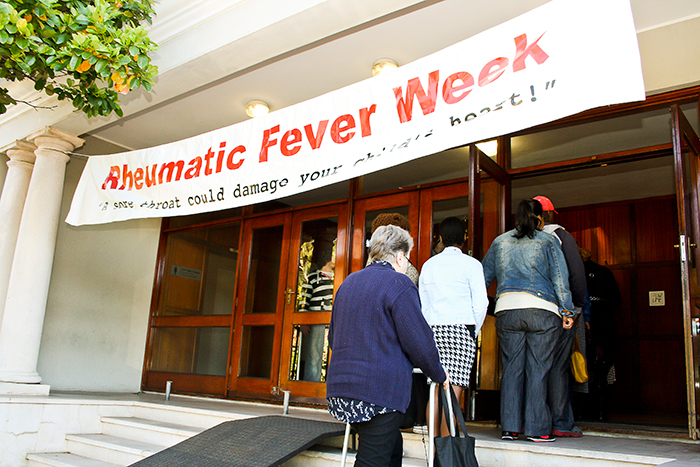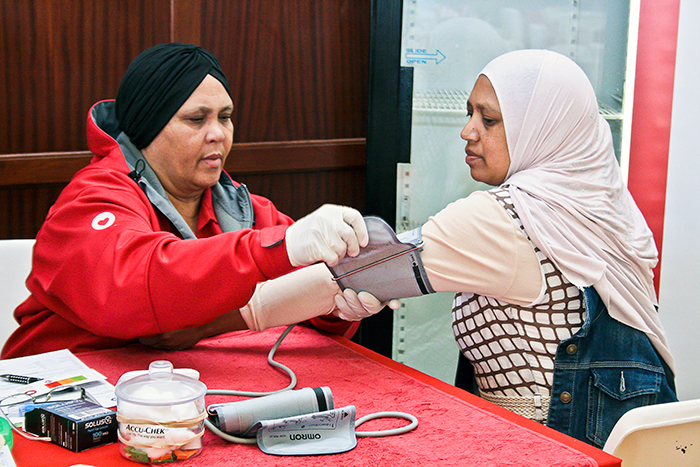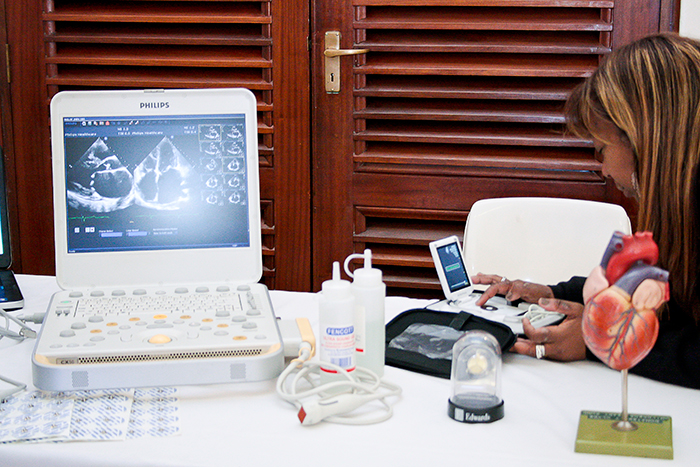Rheumatic Heart Disease Wellness Event

On the 6th of August 2015 approximately 250 patients at Groote Schuur Hospital (GSH) being treated for Rheumatic Heart Disease (RHD), a disease that affects the valves of the heart, attended the annual Wellness Fair. These GSH patients are among over 3000 participants in a two-year study of the disease from sites in Africa, India and Yemen.

The Global Rheumatic Heart Disease registry (REMEDY) study, designed to follow RHD patients from developing countries over two years, aims to do a comprehensive evaluation and follow-up of both the disease and treatment patterns among RHD patients. REMEDY is the first large-scale prospective study to characterise these patterns.

Patients from Groote Schuur Hospital constitute the largest group in the REMEDY study and have provided critical information about patients, treatment and the disease. “Thus far, the major findings are that our patients are young, have severe disease with many having had surgery or interventions and, that mortality is higher than previously suggested,” says Prof Mayosi.

A highlight of the event was the testimony of two patients who shared their experiences of living with RHD. The Heart and Stroke Foundation of South Africa conducted health checks for the patients and various booths displayed information raising awareness of RHD.